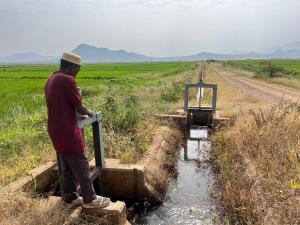Test project Heidi
In the spirit of life long learning
Testproject DM
Welcome to Daniel's testproject
Test project Pesticides and Protection Tanzania
testing out building a project
Joshua Moses
JoshuaI teach anthropology and environmental studies at Haveford College, just outside of Philly. Currently, I'm holed up in a cabin in the Adirondacks in upstate New York with several family members, including my spouse and 4 year old daughter and 3 dogs. I started working on disasters by accident, when one day in 2001 I was walking to class at NYU and saw the World Trade Center buildings on flames. I have known Kim for a few year and I contacted her to connect with folks around Covid-19 and its imacts.
I'm particularly intersted in issues of communal grief, mourning, and bereavement. Also, I'm interested in the religious response to Covid-19.
pece_annotation_1475262104
maryclare.crochiereThe health of the inmates is in serious jeopardy and there was in instance in which an ambulance was unable to get to the island, which resulted in a death. There are also a lot of suicide attempts so that should be a warning to someone.
pece_annotation_1477273565
maryclare.crochiereMedicaid covers the elderly and low-income families, those that are likely to not be able to afford health care, since children and the elderly often\ require more medical attention. It would seem to me that mental disabilities don't discrimintate based on age or strength, like physical issues may, however old age and decreasing physical abilities can harm mental health. These populations, with lower income, do not have as much access to mental health help, and that can further their economic situation, so this policy ensures that they will be taken care of sufficiently. At the same time, it ignores the needs of the middle-aged patients, as they must be covered by the state or in other ways.
pece_annotation_1478548269
maryclare.crochiereThe program is targeted for the entire world. They want to advance science while encouraging peace and furthering the training and knowledge of those who will save lives in the face of disaster. This is able to apply to the whole world, based on the possible size of disasters associated with the magnitude of these types of power. Thus, the goal is for everyone to be involved, and most of the world is involved at this point.
pece_annotation_1480105532
maryclare.crochiereEmergency response is not directly discussed in this article, however seizures are a common reason to call for EMS. Seizures, or "fainting" as they called it, can be dangerous, especially if the patient is alone or if it is at night. If there are a lot of people with epillepsy that is not controlled, then there could be an overload on the EMS system.



the rice irrigation scheme, Pare Valley, Tanzania